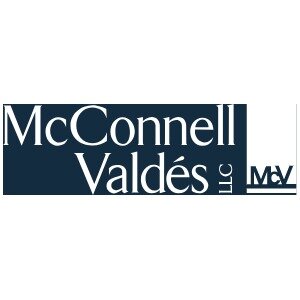Best Brokerage Lawyers in Puerto Rico
Share your needs with us, get contacted by law firms.
Free. Takes 2 min.
Free Guide to Hiring a Real Estate Lawyer
Or refine your search by selecting a city:
List of the best lawyers in Puerto Rico
About Brokerage Law in Puerto Rico
In Puerto Rico, the legal field of brokerage involves the regulation of services related to the buying, selling, and negotiation of properties and financial securities. Brokerage professionals, often referred to as brokers, act as intermediaries between parties involved in transactions. Puerto Rican law requires brokers to adhere to specific licensing and operational guidelines to ensure transparency and fairness in these transactions. The Puerto Rico Department of State oversees broker licensing, while various laws govern their conduct, including compliance with ethical standards and fiduciary duties.
Why You May Need a Lawyer
Several situations might necessitate the need for legal assistance in brokerage matters in Puerto Rico:
- Disputes arising from property transactions or sales agreements.
- Conflicts over brokerage fees or commissions.
- Issues related to noncompliance with licensing requirements or regulatory guidelines.
- Ensuring full disclosure requirements are met in real estate transactions.
- Litigation concerning fraud or misrepresentation by a broker.
- Clarification of rights and responsibilities under local brokerage law.
Local Laws Overview
The brokerage industry in Puerto Rico is primarily regulated by a combination of federal and local laws. Some of the key legislative acts and regulatory bodies influencing brokerage in Puerto Rico include:
- Puerto Rico Real Estate Act: Establishes the requirements for real estate brokers and salespersons, including licensure, misconduct provisions, and ethics standards.
- Securities Act: Governs the sale and regulation of securities, ensuring market integrity and protecting investors.
- Consumer Protection Laws: Brokers must comply with these laws to protect clients from misleading practices.
- Regulatory Bodies: The Office of the Commissioner of Financial Institutions of Puerto Rico oversees compliance with the Securities Act, and the Puerto Rico Department of Consumer Affairs (DACO) ensures compliance with consumer protection laws.
Frequently Asked Questions
What is the primary governing body for brokers in Puerto Rico?
The Puerto Rico Department of State regulates broker licensing and practice, while specific matters may be overseen by DACO or the Office of the Commissioner of Financial Institutions depending on the area of brokerage.
Do I need a license to operate as a broker in Puerto Rico?
Yes, brokers must obtain a license from the Puerto Rico Department of State. This involves fulfilling educational requirements, passing a licensing exam, and upholding ethical standards.
How can I verify if a broker is licensed?
The Puerto Rico Department of State maintains a registry of licensed brokers, which can be accessed online or through their office to verify a broker’s credentials.
What are some common broker misconduct issues?
Misconduct can include fraud, misrepresentation of property value or securities, failure to disclose information, and conflicts of interest.
How can I resolve a dispute with a broker?
Initially, attempt resolution through direct communication with the broker. If unsuccessful, a complaint can be filed with the relevant regulatory body, and legal action may be pursued if necessary.
What are fiduciary duties of a broker?
Brokers are required to act in the best interest of their clients, maintaining loyalty, confidentiality, and full disclosure while avoiding conflicts of interest.
Can brokers represent both buyers and sellers?
Yes, but this is known as dual agency and both parties must consent to it. The broker must handle such relationships with transparency and neutrality.
Are brokers responsible for errors in property listings or securities information?
Brokers have a duty to ensure the accuracy of all information provided to clients and may be liable for errors that result in client harm.
What recourse is available if I discover a broker’s fraud after a transaction?
Victims of fraud should consult a lawyer to explore potential legal actions such as rescinding the transaction, seeking damages, and filing a complaint with regulatory authorities.
Are there alternative dispute resolution options for brokerage conflicts?
Yes, mediation and arbitration may be viable alternatives to litigation, offering a less adversarial and often quicker resolution process.
Additional Resources
For further assistance and information regarding brokerage matters in Puerto Rico, consider the following resources:
- Puerto Rico Department of State: Offers information on broker licensing and oversees regulatory compliance.
- Office of the Commissioner of Financial Institutions: Provides guidance on securities regulation and market practices.
- Puerto Rico Real Estate Institute: Educates and provides resources for real estate professionals.
- Puerto Rico Consumer Affairs Department (DACO): Assists with consumer protection issues related to brokerage.
Next Steps
If you are in need of legal assistance regarding brokerage matters in Puerto Rico, consider the following steps:
- Conduct research to understand the basics of your issue and gather any relevant documents or evidence.
- Consult with a legal professional specializing in brokerage law to receive tailored advice and guidance.
- Consider reaching out to the appropriate regulatory body if your issue involves potential legal violations by a broker.
- Explore dispute resolution options including mediation or arbitration if litigation seems too confrontational or expensive initially.
Lawzana helps you find the best lawyers and law firms in Puerto Rico through a curated and pre-screened list of qualified legal professionals. Our platform offers rankings and detailed profiles of attorneys and law firms, allowing you to compare based on practice areas, including Brokerage, experience, and client feedback.
Each profile includes a description of the firm's areas of practice, client reviews, team members and partners, year of establishment, spoken languages, office locations, contact information, social media presence, and any published articles or resources. Most firms on our platform speak English and are experienced in both local and international legal matters.
Get a quote from top-rated law firms in Puerto Rico — quickly, securely, and without unnecessary hassle.
Disclaimer:
The information provided on this page is for general informational purposes only and does not constitute legal advice. While we strive to ensure the accuracy and relevance of the content, legal information may change over time, and interpretations of the law can vary. You should always consult with a qualified legal professional for advice specific to your situation.
We disclaim all liability for actions taken or not taken based on the content of this page. If you believe any information is incorrect or outdated, please contact us, and we will review and update it where appropriate.
Browse brokerage law firms by city in Puerto Rico
Refine your search by selecting a city.









